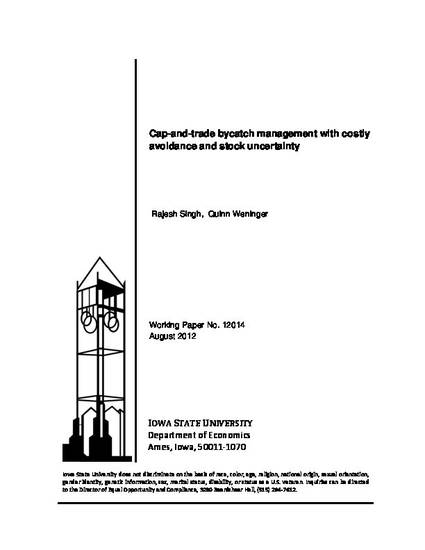
Regulations to reduce bycatch of non-marketed marine species often impose gear restrictions, reductions in harvest of the target species, and/or spatial and temporal closures of the fishing ground. These regulations can exact significant social costs in commercial fisheries. We evaluate performance of a cap-and-trade bycatch management policy. Harvest of a target fish species, costly avoidance of the bycatch species, and harvesting efficiency is examined in a stochastic production environment with and without at-sea observability of bycatch, and with and without trade in harvest quotas and bycatch caps. Our results suggest that a precise implementation of a socially optimal management plan is possible only if bycatch is observable and trade in fish quotas and bycatch cap is frictionless. Conditions exist in which quota/permit trading raises bycatch relative to a no trade environment. The results offer useful guidance for designing cap-and-trade bycatch management programs.
Available at: http://works.bepress.com/quinn-weninger/2/
